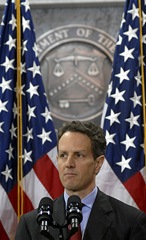By far, the most read item this year on Bad Money Advice was Swoopo: Entertaining Yes, Shopping No. It’s the closest I’ve ever gotten to a post really going viral, accounting for about 4% of all page views on this site. No  doubt it was the first thing many of you ever read here.
doubt it was the first thing many of you ever read here.
So I don’t need to recap what it says. But I will remind you all that I called Swoopo a sort of "commercial performance art in which it is demonstrated just how dumb we really are." But dumb isn’t quite the right word. Irrational is better.
And that is today’s year-in-review theme, that we are all nuts. Not that there is anything wrong with that. It’s just that we aren’t nearly as logical as we think we are.
Back in March I posted on a wonderful new concept discovered by two professors: saver’s remorse. The gist of it is that it is possible to regret saving instead of spending, just as you could regret the reverse. In a better world that would have been an absurdly mundane finding, but in our world it is pretty radical.
Read more »
As winter rolls in and the season of office parties fades into the season of empty offices, it is time to pause and take stock. It is hard to imagine that we will be looking back on 2009 as the good old days any time soon, but things could certainly have been worse.
 The end of 2009 also marks, more or less, the end of the first year of this blog. So it makes sense to review the year by reviewing the year in the blog. In the next few posts I will be highlighting a few general themes that emerged as the year went on. Today it is the most obvious of topics, The Great Recession.
The end of 2009 also marks, more or less, the end of the first year of this blog. So it makes sense to review the year by reviewing the year in the blog. In the next few posts I will be highlighting a few general themes that emerged as the year went on. Today it is the most obvious of topics, The Great Recession.
What set off the GR was best discussed here at Bad Money Advice in a book review I wrote (in two parts) of the probably now forgotten The Wall Street Journal Guide to the End of Wall Street as We Know It. I meant to do more book reviews when I started this blog.
Read more »
Earlier this week I stumbled across a surprisingly on-target quote about what got us into this economic mess from, of all people, Treasury Secretary Timothy Geithner.
The failures that led to this financial crisis were many. Banks and investors took on large risks, risks they did not understand. Washington allowed those risks to build up unchecked. And in communities across the country, Americans borrowed too much in part because they did not understand how to save prudently, how to borrow responsibly, and they did not understand fully that pension values and house prices, equity prices will not always rise.
It’s not a perfect explanation. I wouldn’t make the general statement that banks and investors didn’t understand the risks they were taking. Some didn’t, but many understood quite well. And I think Washington was more than a passive observer of the whole mess.
But the blame laid at the feet of Wall Street and the government is mostly pro forma here. What Geithner is saying is that, as it turns out, a widespread lack of financial acumen amongst ordinary folks was at least as damaging as the foolishness amongst the bankers and bureaucrats. In the immortal words of Pogo "We have met the enemy and he is us."
Read more »
Trawling The Consumerist for something to write about I was excited to find a post entitled An Argument For 401(k) Minimizing. It turned out to be about a post at Punch Debt in the Face that, at most, argues against 401(k) maximizing. Still, that’s something.
I like Punch Debt in the Face. Although I am clearly at least a generation too old to fully relate, and the layout still reminds me of a ransom note, the Twitter graphic alone is worth the click. And the blog’s author, Debt Ninja, is endearingly hostile to conventional wisdom and insists on doing his own math. My kinda guy.
Debt Ninja’s post contains what ought to be a mundane discussion of reducing his 401(k) contribution from 8% to 5%. He also contributes to a Roth IRA and makes the argument that being a very rich 60 year-old in exchange for being an impoverished 25 to 59 year-old is not a good deal.
Read more »
I have managed to go since August 20th without mentioning Brett Arends of the Wall Street Journal. It hasn’t been easy, but for 59 posts I have stayed on the wagon. Until now. Arends’ Wednesday column was just too strong a temptation. It had the siren-call title of "Are Your U.S. Treasury Bonds Safe?" How am I supposed to ignore that? I  am only human.
am only human.
Needless to say, the column lacked a yes/no answer to its headline. Sure, "Standard financial theory defines "the risk-free rate of return" on money as the rate of return you can earn on Treasurys" but this time is different: the government is now in the control of politicians who like to spend money and don’t like to raise taxes.
But as the U.S. government piles borrowing atop more borrowing, it begs a financial question that is not utterly ridiculous: Are your U.S. Treasury bonds safe?
Read more »
 doubt it was the first thing many of you ever read here.
doubt it was the first thing many of you ever read here.


